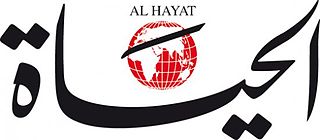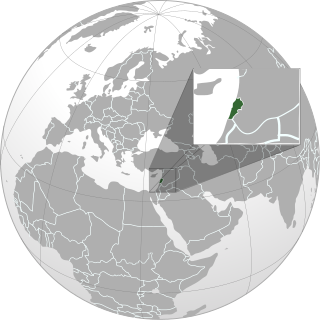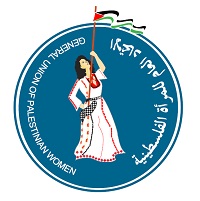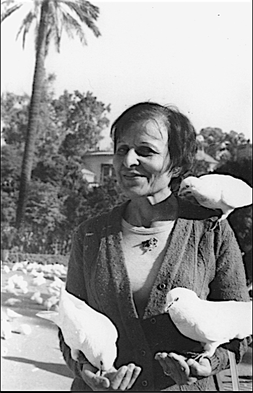Related Research Articles
The Lebanese American University is a secular private American university in Beirut and Byblos, Lebanon. It is chartered by the board of regents of the University of the State of New York and is accredited by the New England Commission of Higher Education (NECHE). It has two campuses and offers 37 minors, 33 bachelor's degrees, and 24 master's degrees, in addition to Pharm.D. and M.D. degrees.
Islamic feminism is a form of feminism concerned with the role of women in Islam. It aims for the full equality of all Muslims, regardless of gender, in public and private life. Islamic feminists advocate for women's rights, gender equality, and social justice grounded in an Islamic framework. Although rooted in Islam, the movement's pioneers have also utilized secular, Western, or otherwise non-Muslim feminist discourses, and have recognized the role of Islamic feminism as part of an integrated global feminist movement.

Al-Hayat was a London-based, pan-Arab newspaper owned by Saudi Prince Khalid bin Sultan, that had a circulation estimated over 200,000. It was the newspaper of record for the Arab diaspora and the preferred venue for liberal intellectuals who wished to express themselves to a large public. Founded in 1946, the paper closed in March 2020 after years of financial problems.

Lesbian, gay, bisexual, and transgender (LGBT) people living in Lebanon may face discrimination and legal difficulties not experienced by non-LGBT residents and are heavily looked down upon by society. Various courts have ruled that Article 534 of the Lebanese Penal Code, which prohibits having sexual relations that "contradict the laws of nature", should not be used to arrest LGBT people. Nonetheless, the law is still being used to harass and persecute LGBT people through occasional police arrests, in which detainees are sometimes subject to intrusive physical examinations.

The roles of women in the Arab world have changed throughout history, as the culture and society in which they live has undergone significant transformations. Historically, as well as presently, the situation of women differs greatly between Arabic speaking regions, their urban or rural population and age groups. Among other factors, these differences can be attributed to local traditions, culture and religion, women's social or legal status, their level of education, health or self-awareness. Since the 19th century, and notably through the influence of the colonization in North Africa, the Arab Renaissance in Egypt, Lebanon, and Syria, and the end of the Ottoman Empire, the social and economic changes in the Arab world have become greatly accelerated and diversified.

The General Union of Palestinian Women is the official representative of Palestinian women within the Palestine Liberation Organization (PLO). The GUPW's executive committee consists of several members including the president, co-founder Intissar al-Wazir. The GUPW was established in 1965 as a body in the PLO with the goal of creating an active role for women in the social, economic, and political spheres of the Palestinian territories. The GUPW advocates a democratic government and a sovereign Palestinian state as a precursor to attaining women's social and political rights. The GUPW has established branches in several countries in the Middle East and Europe to further support women's movements through educational opportunities, financial assistance, and more.

The roles of women in Lebanon have evolved throughout history. The legal status of women transformed over the 20th century, but traditional patriarchal norms and conservative versions of law continue to influence women's rights in Lebanon.
The United Nations Entity for Gender Equality and the Empowerment of Women, also known as UN Women, is a United Nations entity charged with working for gender equality and the empowerment of women. UN Women is charged with advocating for the rights of women and girls, and focusing on a number of issues, including violence against women and violence against LGBT people.

Ghassan Salamé is a Paris-based Lebanese academic. He served as the Lebanese Minister of Culture from 2000 to 2003. He was the Dean of the Paris School of International Affairs (PSIA) and professor of International Relations at Sciences Po. Salamé served as the head of the United Nations Support Mission in Libya from 2017 to 2020.

Mounira Solh was a pioneer advocate for the rights of women and people with disabilities in Lebanon. She was one of the first women in Lebanon and the Middle East to run for parliament. She ran for a seat in the Parliament of Lebanon in 1960, 1964 and 1968. She was also a humanitarian with decades of volunteer and charity work.
Layla Balabakki was a Lebanese novelist, journalist, activist and feminist. Among her most notable works is Ana Ahya (1958) which tells the story of a woman's protest against parental authority and community leaders. Balabakki's literary work also inspired political uproar because of her public criticisms of Islam and sexually explicit stories. Balabakki was brought to trial, while her work was censored. Her desire to push back against societal values and explore alternative female identities made Balabakki a large influence on contemporary Arab feminism.
Nay El Rahi is a Lebanese journalist, researcher, activist, and gender advocacy professional from Beirut, Lebanon.

Beirut Pride is the annual non-profit LGBTQIA+ event and march held in Beirut, the capital of Lebanon. Established with the mission to advocate for the decriminalization of homosexuality within Lebanon, the event serves as a platform for fostering visibility, acceptance, and equality for the queer community in the region.

Rose Ghorayeb was a Lebanese writer, author, literary critic, and feminist. She was a professor of Arabic literature at the Lebanese American University and was frequently referred to as the "first female critic in Arabic literature". Regarded as a pioneer in aesthetic criticism, her literary career spanned more than 70 years and included many children stories, articles, biographies and plays.

The 17 October Protests, commonly referred to as the 17 October Revolution or as Hirak were a series of civil protests in Lebanon that began after the Lebanese cabinet announced financial measures on 17 October 2019. These national protests were triggered by planned taxes on gasoline, tobacco, and VoIP calls on applications such as WhatsApp, but quickly expanding into a country-wide condemnation of sectarian rule, the stagnation of the economy, unemployment, endemic corruption in the public sector, legislation that was perceived to shield the ruling class from accountability and failures of the government to provide basic services such as electricity, water, and sanitation.
May Musa Sayegh, also spelled Mai Sayegh, was a Palestinian poet, feminist, political activist, and writer.
Feminist foreign policy, or feminist diplomacy, is a strategy integrated into the policies and practices of a state to promote gender equality, and to help improve women's access to resources, basic human rights, and political participation. It can often be bucketed into three categories: rights, resources, and representation. The concept was first coined and integrated into governmental policy by Margot Wallström, former Swedish Foreign Affairs Minister. The objectives of feminist foreign policy include :

Nandu Gyawali, known as Nandar, is a feminist activist in Myanmar. She is the founder of the Purple Feminists Group and hosts the podcasts G-Taw Zagar Wyne and Feminist Talks. In 2020, she was named to the BBC's 100 Women list.
Aya Mouallem is a Lebanese electrical engineer, gender equality activist, and a Knight-Hennessy Scholar at Stanford University. She is the co-founder, co-director, and current board advisory member of All Girls Code, a volunteer-led initiative to provide Lebanese female youth with coding experience. Mouallem is active in the field of Arab youth women empowerment in STEM.
Yasmina Benslimane is a Moroccan feminist activist and the founder of Politics4Her. She is known for her work in advocating for gender equality, women's rights, and increased political participation and representation for young women and girls, in particular.
References
- 1 2 Mirshad, Hayat. "Portfolio". Hayat Mirshad. Archived from the original on 11 July 2021. Retrieved 19 July 2021.
- 1 2 3 "Ask an Activist: What do you think is the role of youth in ending violence against women and girls?". UN Woman – Arab States. 25 April 2019. Archived from the original on 11 June 2019. Retrieved 9 March 2021.
- ↑ "Hayat Mirshad". Global Thinkers Forum. Archived from the original on 5 March 2021. Retrieved 19 July 2021.
- ↑ "Gender in Development & Humanitarian Assistance (GDHA) Associate Diploma". LAU. Archived from the original on 30 September 2020. Retrieved 19 July 2021.
- ↑ "LAU launches Gender in Development and Humanitarian Assistance Diploma". Lebanese American University. 25 October 2016. Archived from the original on 31 October 2016. Retrieved 19 July 2021.
- ↑ "Take five: "Women should lead the conversation on gender equality"". UN Women. 18 February 2021. Archived from the original on 12 March 2021. Retrieved 28 March 2021.
- ↑ "Men and Women for Gender Equality". arabstates.unwomen.org. Archived from the original on 18 February 2021. Retrieved 28 March 2021.
- ↑ "BBC 100 Women 2020: Who is on the list this year?". BBC News. 23 November 2020. Archived from the original on 28 March 2021. Retrieved 28 March 2021.
- ↑ Zrein, Rim (25 November 2020). "Lebanese Journalist Ranked Among BBC's 100 Most Inspiring & Influential Women". The 961. Archived from the original on 25 November 2020. Retrieved 9 March 2021.
- ↑ Arawi, Mia (24 November 2020). "Lebanese Activist Makes It To BBC's 100 Women List For 2020". Beirut. Archived from the original on 14 March 2021. Retrieved 9 March 2020.